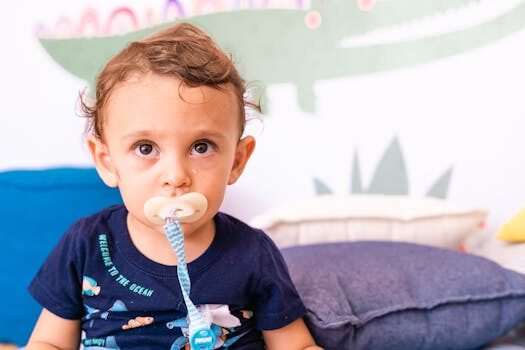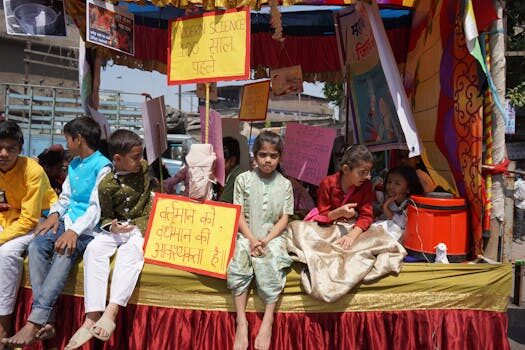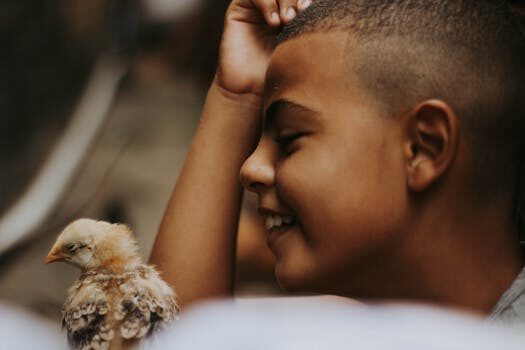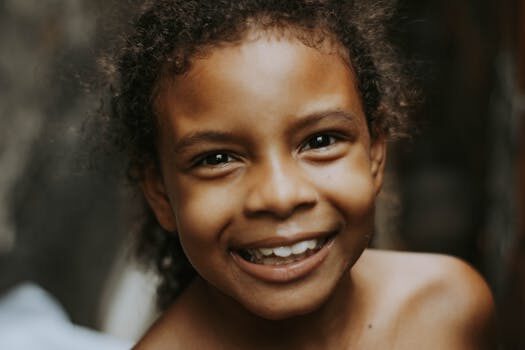"Ugly" kid: understanding the meaning and context

The phrase “ugly kid” often evokes strong emotions, particularly among parents and children alike. This term can carry significant weight, influencing how children perceive themselves and how they are perceived by others. Understanding the implications of being labeled as such involves exploring various emotional, societal, and spiritual dimensions.
This article delves into the impact of being marked as an “ugly” kid, the perceptions of parents, and how society can foster a more positive environment for children beyond superficial beauty standards.
What are the emotional impacts of being an “ugly” kid?
Being labeled as an “ugly” kid can lead to a myriad of emotional challenges. Children who face such labels may experience low self-esteem and anxiety. The weight of these labels can create a sense of isolation, making it difficult for them to interact with peers.
Additionally, the emotional impacts extend beyond childhood. Adults who were once deemed “ugly” kids often carry these feelings into adulthood, struggling with self-image and confidence. Overcoming bullying related to appearance becomes a lifelong journey for many, as they grapple with the internalized narratives formed during their formative years.
Furthermore, the emotional toll may lead to mental health issues, such as depression and anxiety disorders. It is crucial to acknowledge that labels can have long-lasting effects on children's emotional well-being.
How do parents perceive the idea of an “ugly” kid?
Parents often reflect societal beauty standards, leading them to perceive their children through a critical lens. This perception can stem from a place of fear, where parents worry about their child's social acceptance and future success based on physical appearance.
Many parents are concerned about the bullying their child might face due to their looks. This anxiety can manifest in various ways, affecting how they communicate and interact with their children. The pressure to conform to societal standards can lead parents to inadvertently project their fears onto their kids, which can impact the child’s self-worth.

- Parents might emphasize beauty over character, inadvertently sending the message that looks are paramount.
- Some might withdraw support and affection, fearing that their child won't fit in.
- In contrast, others might advocate for a broader understanding of beauty, focusing on health and happiness.
This dichotomy in parental perception highlights the vital role parents play in shaping their children’s self-image and emotional health.
What are some famous quotes about children’s beauty and worth?
Words have the power to uplift and inspire, particularly when it comes to children. Quotes from influential figures often remind us of the intrinsic value of every child, regardless of their physical appearance. For instance, Mother Teresa once said, "What can you do to promote world peace? Go home and love your family." This emphasizes that love and character are foundational to a child's worth.
Nelson Mandela also highlighted the importance of nurturing children's potential by stating, "There can be no keener revelation of a society's soul than the way in which it treats its children." Such insights encourage a more profound appreciation of children beyond superficial standards.
Collectively, these quotes advocate for the protection and empowerment of children, emphasizing that their beauty comes from within.
How can we foster a positive environment for all children?
Creating a nurturing environment for children requires a concerted effort from parents, educators, and society at large. Nurturing children's potential beyond physical looks is essential in cultivating self-esteem and resilience.
- Encourage open discussions about feelings and self-worth.
- Promote activities that focus on personal growth, such as sports, arts, and community service.
- Recognize and celebrate diverse forms of beauty, encouraging children to appreciate their unique qualities.
Parents can lead by example, demonstrating positive self-image and self-acceptance. By instilling values that prioritize kindness, empathy, and respect, we can help children develop a healthy self-concept.
What are the biblical perspectives on children and their value?
From a biblical standpoint, children are considered a blessing and possess inherent worth. Verses such as Psalm 127:3 remind us that, "Children are a heritage from the Lord, offspring a reward from him." This suggests that every child is valuable and worthy of love, regardless of their appearance.

Furthermore, the Bible teaches that the true essence of a person lies within. 1 Samuel 16:7 states, "For the Lord sees not as man sees: man looks on the outward appearance, but the Lord looks on the heart." This perspective encourages a focus on inner beauty and character, aligning with the belief that all children should be cherished for who they are.
How can society change its perception of beauty in children?
Changing societal perceptions of beauty requires a multifaceted approach. One key strategy is to challenge existing beauty standards through representation in media and culture. By showcasing diverse body types, colors, and features, we can help reshape the narrative around beauty.
Education plays a crucial role in this transformation. Schools and communities can implement programs aimed at teaching children about self-acceptance and the diversity of beauty. Engaging children in discussions about media literacy can also empower them to critically assess beauty ideals.
- Encourage media to showcase real-life stories and individuals.
- Support campaigns that promote body positivity and self-love.
- Involve children in community activities that celebrate uniqueness.
By fostering an inclusive environment, society can contribute to the empowerment of children, allowing them to grow up confident in their worth.
Questions related to the concept of childhood
Is 17 still a kid?
The transition from childhood to adulthood is gradual, with 17 often seen as a pivotal age. While many societies consider 17-year-olds as teenagers on the cusp of adulthood, they still exhibit behaviors typical of children. At this age, individuals are often navigating complex emotions and identity, which signifies that they are still in a phase of growth and development.
What is a 7 year old called?
A 7-year-old is typically referred to as a “child” or a “kid.” At this age, children are usually in the second or third grade, exploring their identities and developing social skills. They are increasingly independent and begin to understand their place in the world, making this a crucial developmental stage.
What age do you stop being a little kid?
The transition out of “little kid” status varies for each individual. Many consider the end of childhood around the age of 12, when children enter adolescence. However, the emotional and developmental journey continues beyond this age, with many still embodying characteristics associated with childhood well into their teenage years.

Is it better to say kids or children?
Both terms, "kids" and "children," are commonly used and accepted. However, "children" often carries a more formal connotation, while "kids" is more casual and widely used in everyday conversation. Ultimately, the choice depends on the context and the audience being addressed.
By understanding the complexities surrounding the label of an “ugly” kid, we can foster a more compassionate society that values children for who they are rather than how they appear. Together, we can create an environment that promotes love, acceptance, and the recognition of the unique qualities inherent in every child.